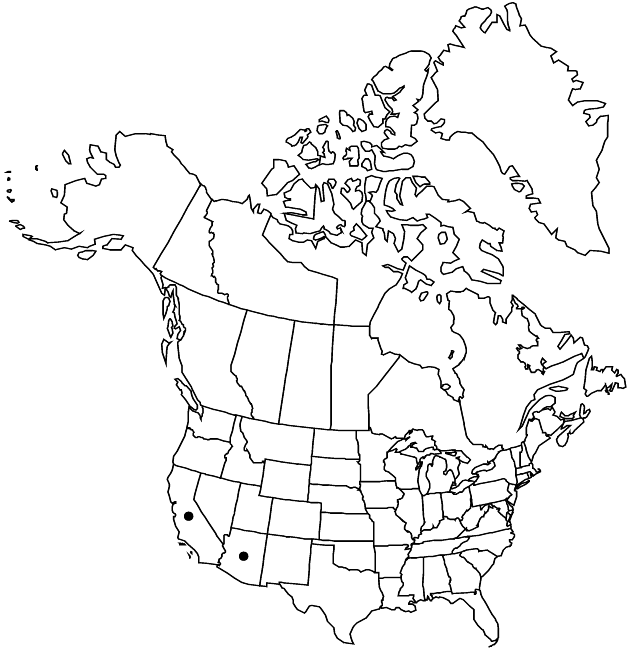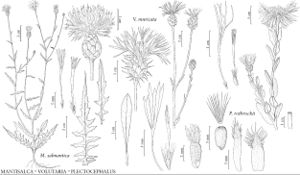Mantisalca salmantica
Biblioth. Universelle Rev. Suisse, pér. 5, 5: 111. 1930.
Herbage cobwebby-tomentose proximally, glabrous distally. Stems usually 1, leafless distally. Leaves: basal blades oblong, 10–25 cm, margins pinnately lobed; cauline linear to lanceolate, smaller distally, dentate to pinnately dissected. Heads long-pedunculate. Involucres ovoid, distally narrowed. Phyllaries greenish or stramineous, apically blackish, spine tips deciduous, spreading or reflexed, 1–3 mm. Corollas ± purple (rarely white). Cypselae dark brown, 3–4 mm; pappus bristles brownish white or reddish, 2–3 mm. 2n = 18 (Italy), 20 (North Africa), 22 (Europe).
Phenology: Flowering spring–early summer (May–Jun).
Habitat: Disturbed sites
Elevation: 0–1700 m
Distribution

Introduced; Ariz., Calif., Europe, n Africa.
Discussion
Mantisalca salmantica is native to the Mediterranean region. It is considered an uncommon introduction into disturbed sites.
Selected References
None.
